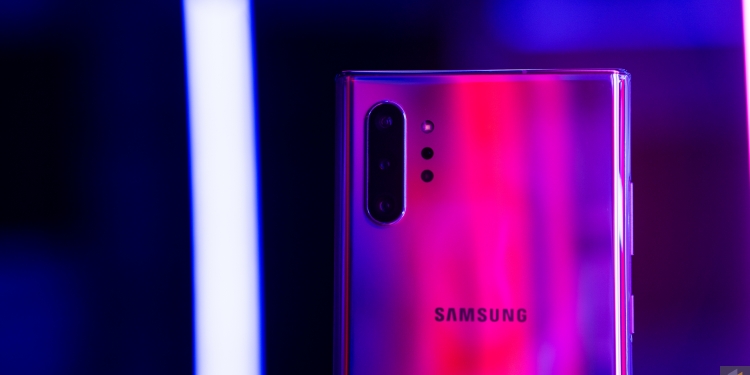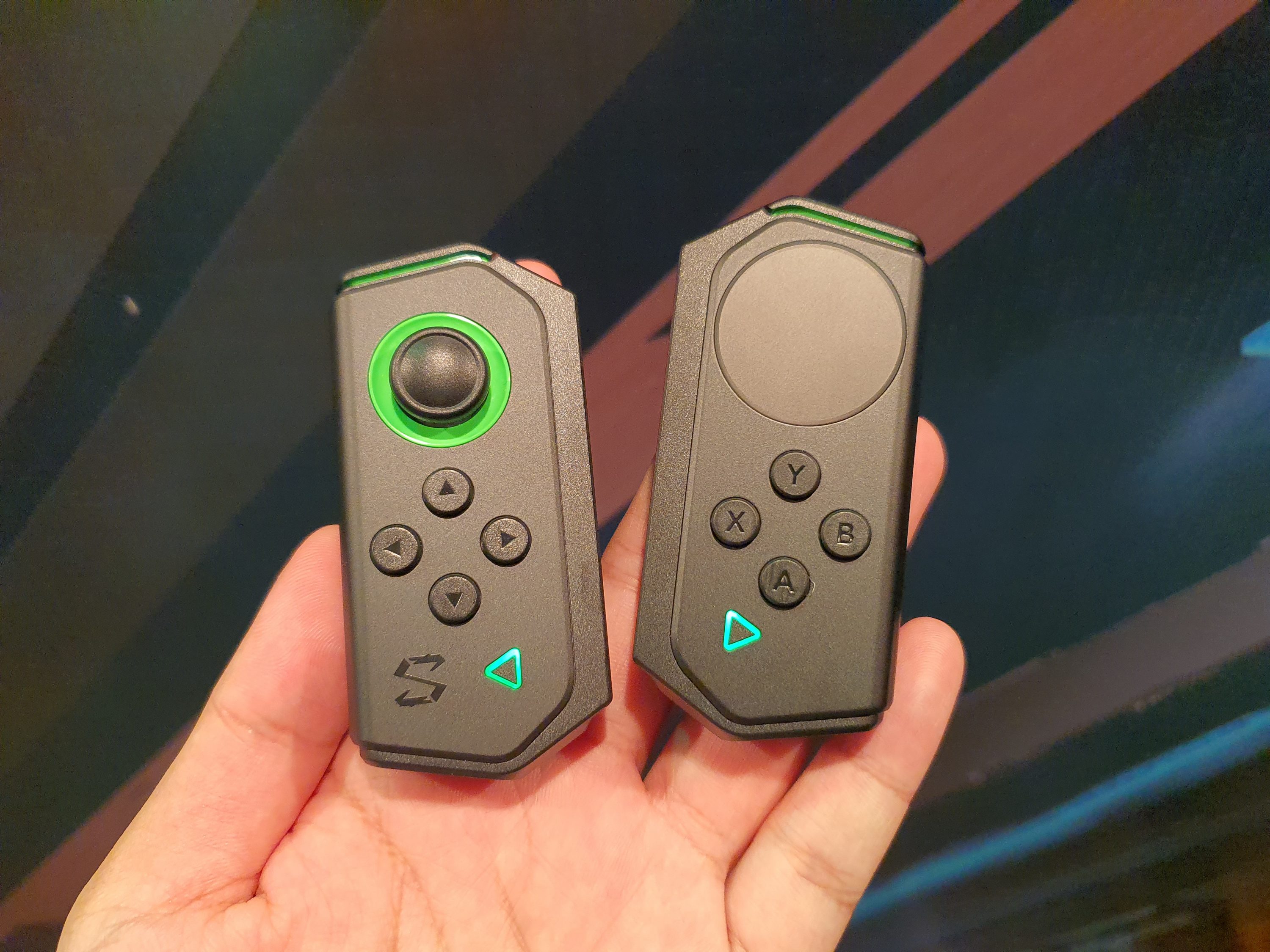Of all the smartphones that you can buy today, few have the kind of history and widespread recognition that the Samsung Galaxy Note does. Only the iPhone comes close but I think a big part of that is because like the Note, the iPhone started something that basically changed the world. With Apple’s smartphone, it was the idea of the modern smartphone. With Samsung’s Galaxy Note, it was the concept of the big smartphone.
Naturally, the Note’s prestige is also helped out by the fact that as a device, the smartphone was almost always unrivaled. Some might even call it the everything phone, and you could make a pretty convincing argument that it was.
But, it’s no easy task, making the best smartphone every single year. And it’s one that even a company with the resources of Samsung occasionally misses the mark with. I remember the Galaxy Note 5, and even the comeback Galaxy Note 8–both capable phones in their own right, just not quite Note-worthy. That said, when Samsung hits the mark—like they did with the Note 9–what you end up with is hands down the best phone of the year.
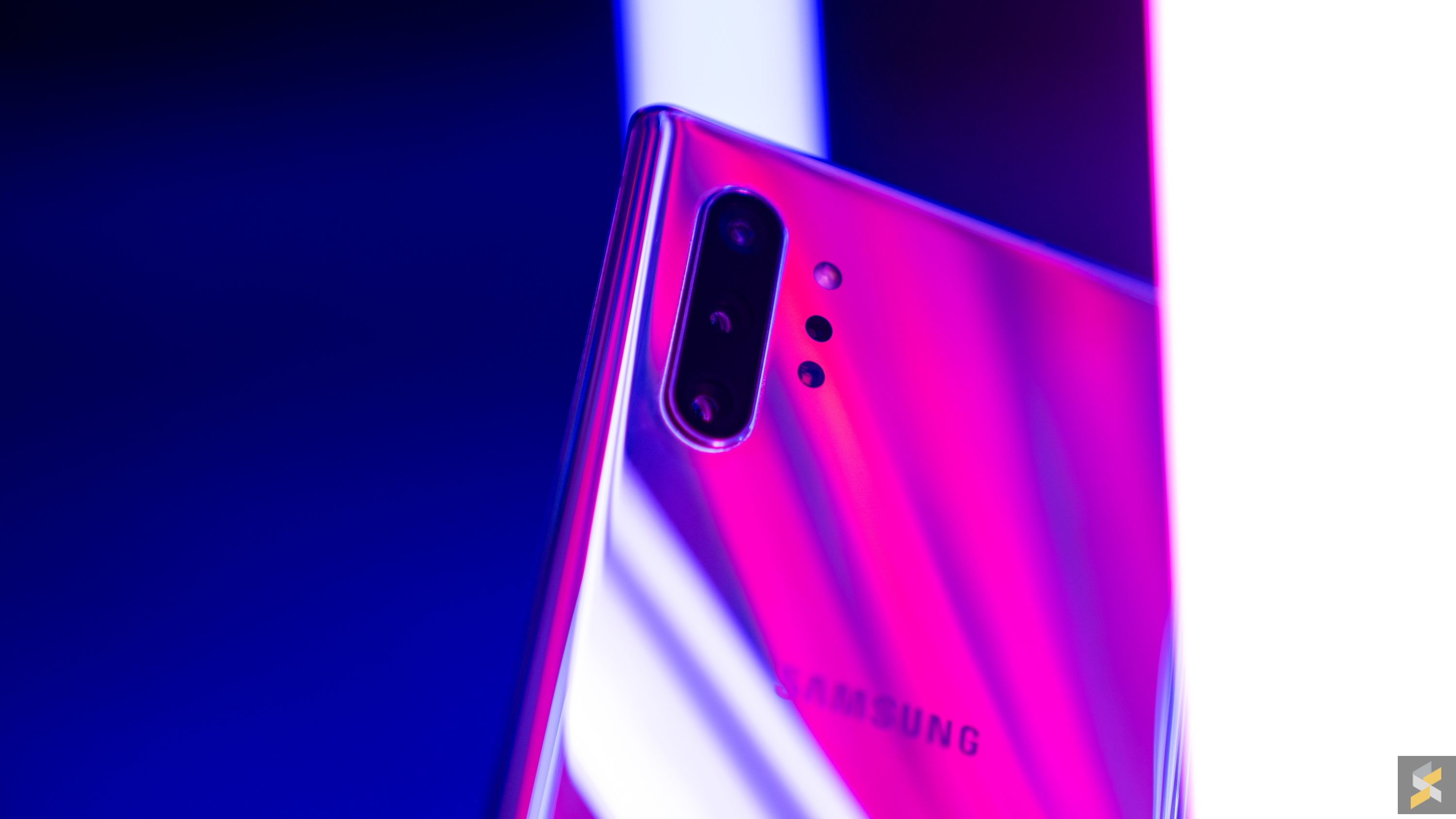
Which brings us to the Samsung Galaxy Note 10, or more specifically the Galaxy Note 10+ that I’ve been reviewing for the last two weeks. The days leading up to the launch were a little bit of a roller coaster ride if I’m being honest. First leaks planted a seed of doubt in my mind, but the subsequent launch and initial hands-on restored my faith in this smartphone. It sure as heck looked like Samsung had a killer smartphone on their hands.
But that’s the thing about spending a couple of minutes with a phone in a store versus actually using it as your daily driver. In just two weeks with the phone, I found its fatal flaw. Its Achilles heel. And it honestly I was so surprised and disappointed because it came from the most unexpected part of the smartphone.
Before we get to that though, I’d like to talk about what the phone gets right. I think it’s important we do this because when you see how much Samsung gets right with the Galaxy Note 10+, I think you’ll understand my frustration with it a little better.
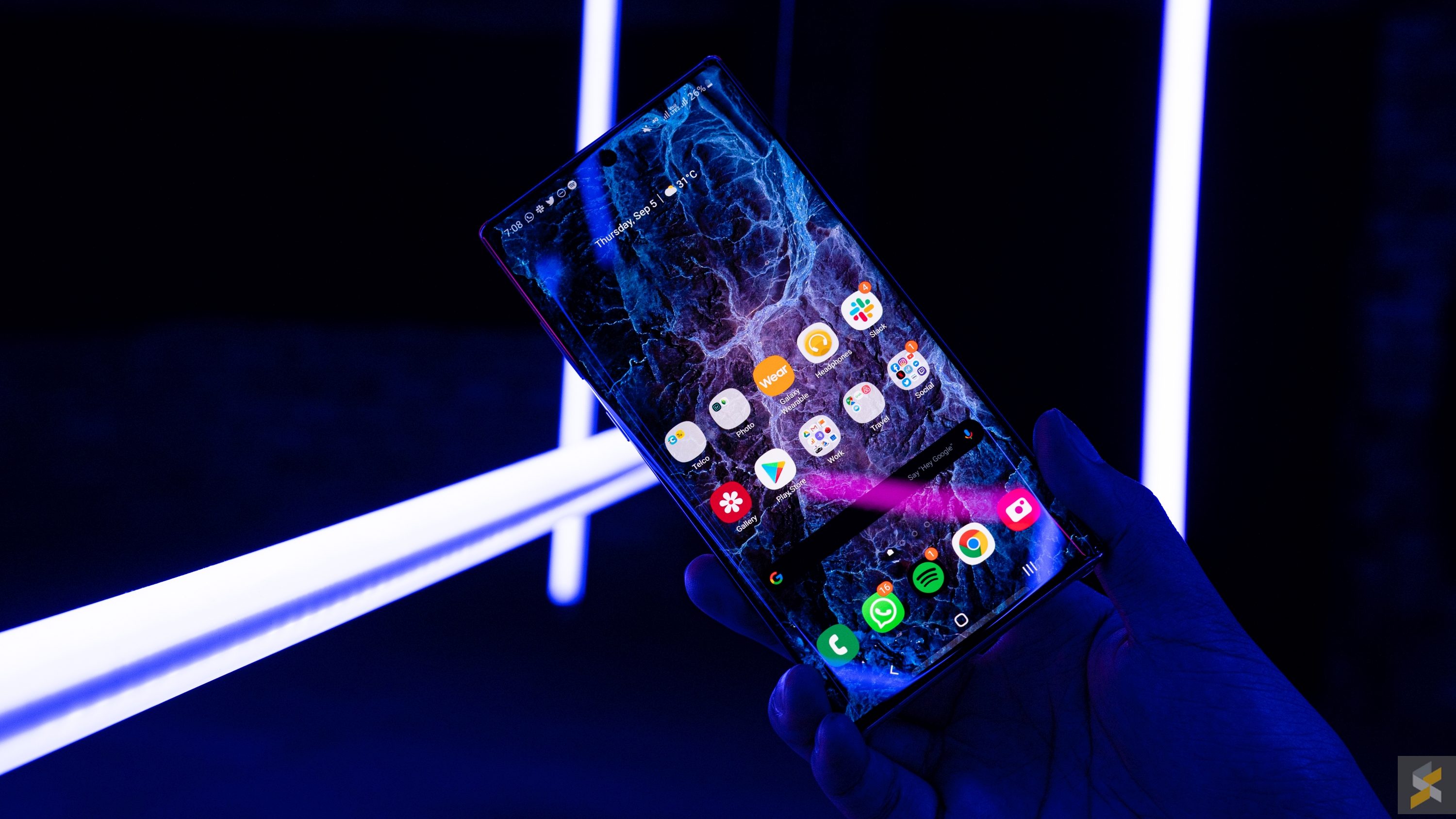
That screen is ridiculous
When people ask me what’s good about the Galaxy Note 10+, I always start with the screen because it’s the single most jaw-dropping feature about this handset. I mean, Samsung screens have always been some of the best in the business, but the Galaxy Note 10+ is amazing even by Samsung standards.
Yes, the panel is a massive 6.8” Dynamic AMOLED display with a Quad HD+ resolution that also bleeds over the edges of the smartphone. Sure, it has great viewing angles for an OLED and looks really crisp and vibrant—all Samsung flagship displays are like this. What sets the Galaxy Note 10+ apart are the lengths to which Samsung have gone to shave down the bezels. It’s ridiculous, and it’s one that you really have to see for yourself in person to really appreciate.
You could argue that the Galaxy S10+ also has really slim bezels with a bleeding edge (literally) display, but the Note 10+ just does it better. Holding it in your hand, it looks almost like it shouldn’t exist—at least, not yet. The curve is more abrupt at the sides, and the corners are more squared off. The chin looks smaller, and so does the forehead. The punch-hole has been moved to the centre so it pulls focus from the corners where the bezels tend to be thicker.
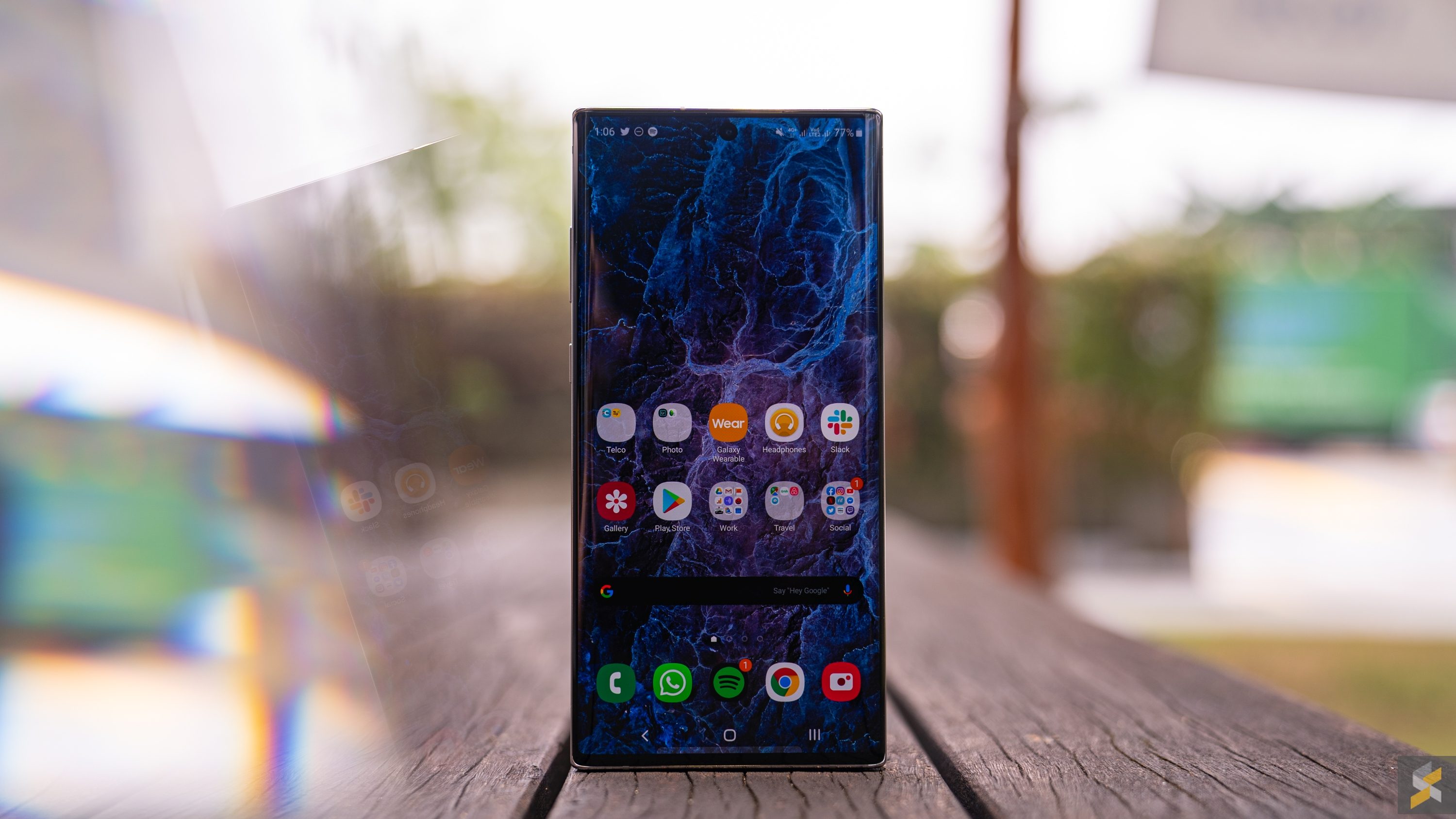
It was a combination of inches that added up to push the Galaxy Note 10+ miles ahead of its competition in the race to capture that all-screen-phone-of-the-future vibe. It is a crazy looking display and since returning the phone, I’ve yet to find another that gives me quite the same feeling.
And obviously, with a Galaxy Note device, this phone has one of the best builds I’ve ever had the pleasure of using. Like its display, Samsung’s flagships have always had great builds, but I think the Note 10+ takes it up yet another notch. The glossy metal frame now blends so well into the glass body that I can barely feel where the glass ends and where the frame begins. In fact, the glass back practically hugs the side of the handset leaving just a sliver of a metal frame between the front and back.
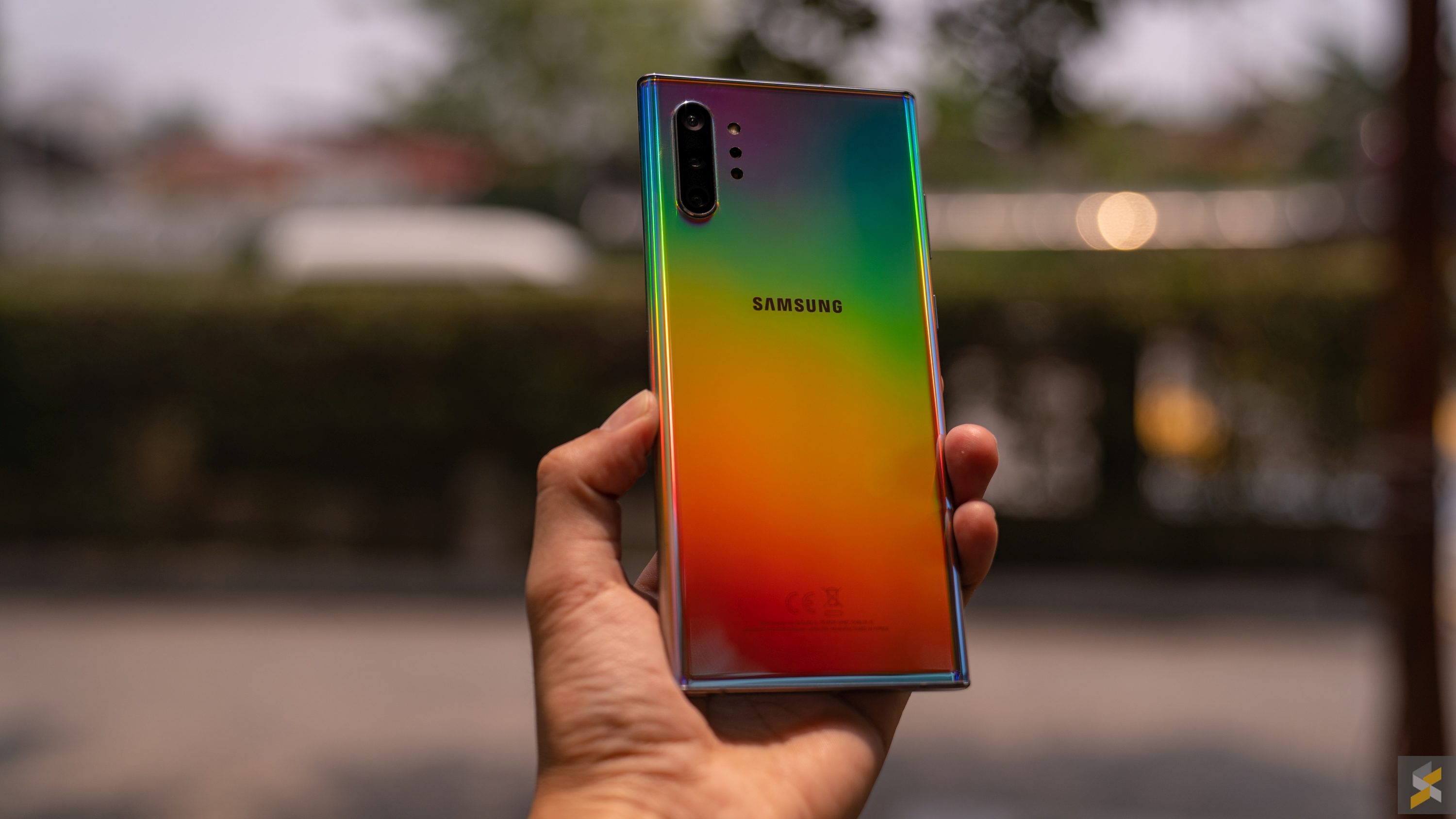
Oh, and can we please appreciate how rad this Aura Glow colourway is? It’s very rare that a smartphone maker absolutely nails the sweet spot where it’s showy without being garish. And on the Note 10+, I think Samsung did a great job.
Pulling out all the stops
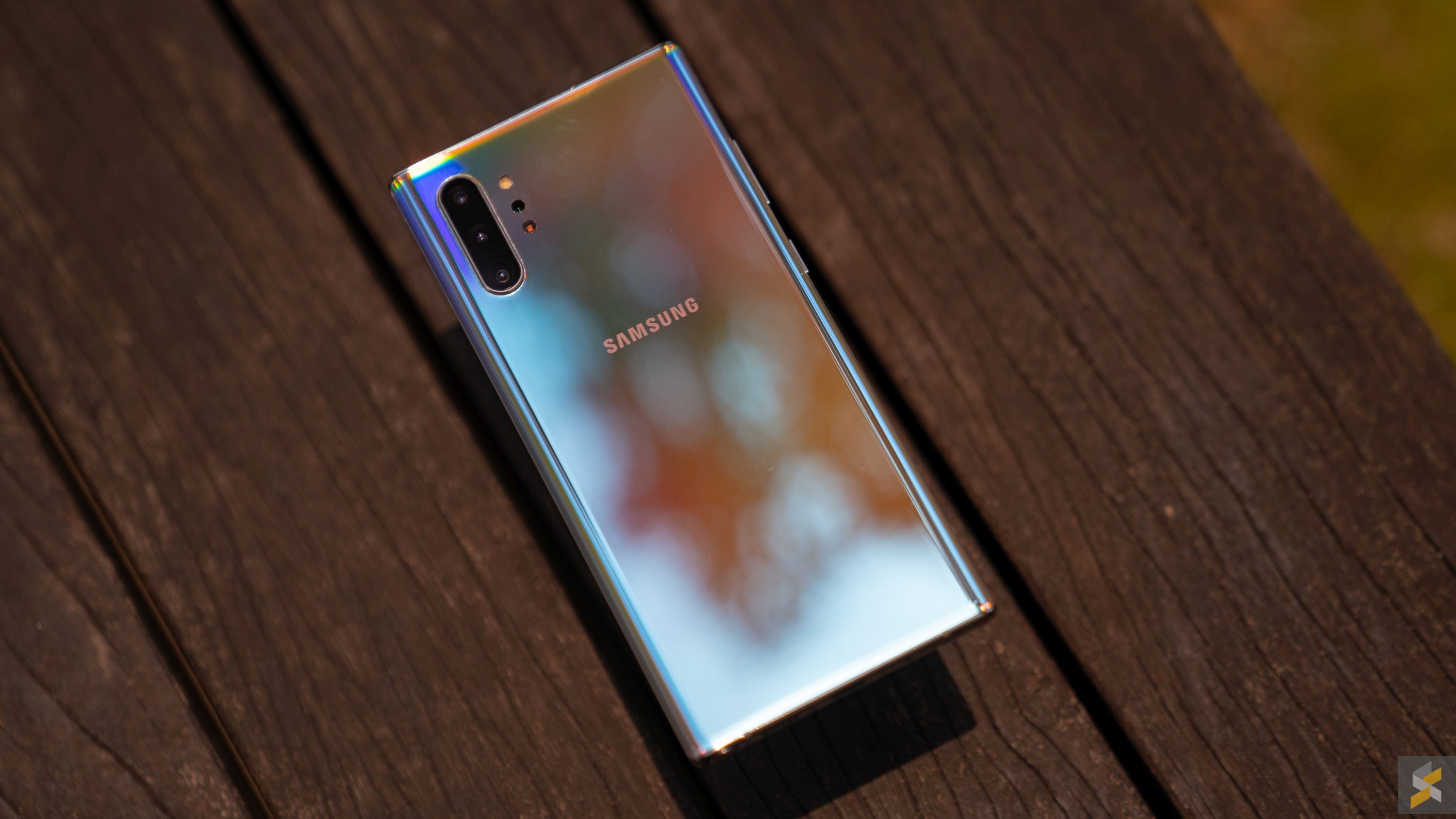
Being a Samsung flagship, the company also kept the internals up to date. For the first time in a while the Galaxy Note 10+ gets an updated processor over its Galaxy S cousin. The Exynos 9825 performed admirably in my time with the device, and the 12GB of RAM and 256GB of internal storage was more than enough for my needs. I also didn’t run into any overheating issues while gaming, nor did I experience any major framerate drops. But, I mean, this is to be expected from a Galaxy Note flagship.
Samsung also gave their latest phone an excellent camera setup at the back. The quad camera lineup consists of a 12MP main camera with a variable aperture wide-angle lens, a 12MP telephoto camera, a 16MP ultra wide-angle camera, and a DepthVision camera that’s solely there for 3D and depth effects.
Photographs in good light look well enough, without the overprocessed look of something like a Huawei P30 Pro, but a little more punch than something like an iPhone. It looks like it came from a Samsung flagship, basically. Scene Optimiser is also there but it isn’t quite as aggressive as Huawei’s Master AI, which is something I really like, so I left it on for the most part.
There’s also a dedicated Night mode, but I have to say that this and the zoom range definitely doesn’t compete with something like the Huawei P30 Pro.
But, while the camera was great at regular photo-taking, I was quite disappointed with Samsung’s Live Focus. I’m baffled that after so many iterations, it’s still not as good as a device from a bang-for-buck phone maker like Xiaomi.
Speaking of being bad at things that aren’t regular photography, I’m not even going to talk about the 3D scanner. You remember Sony’s own attempt with the Xperia XZ1’s memory stacked MotionEye camera? Yeah, even with the fancy DepthVision camera, the Note 10+’s results were pretty much the same, if not slightly worse than what I saw with Sony. It needs a lot more work before I’d even call this a feature.
Bonus selfie
In any case, I’ll do a more thorough test of the camera in an upcoming camera comparison video. Now, though, it’s time to look at the Galaxy Note’s unique feature.
The S Pen
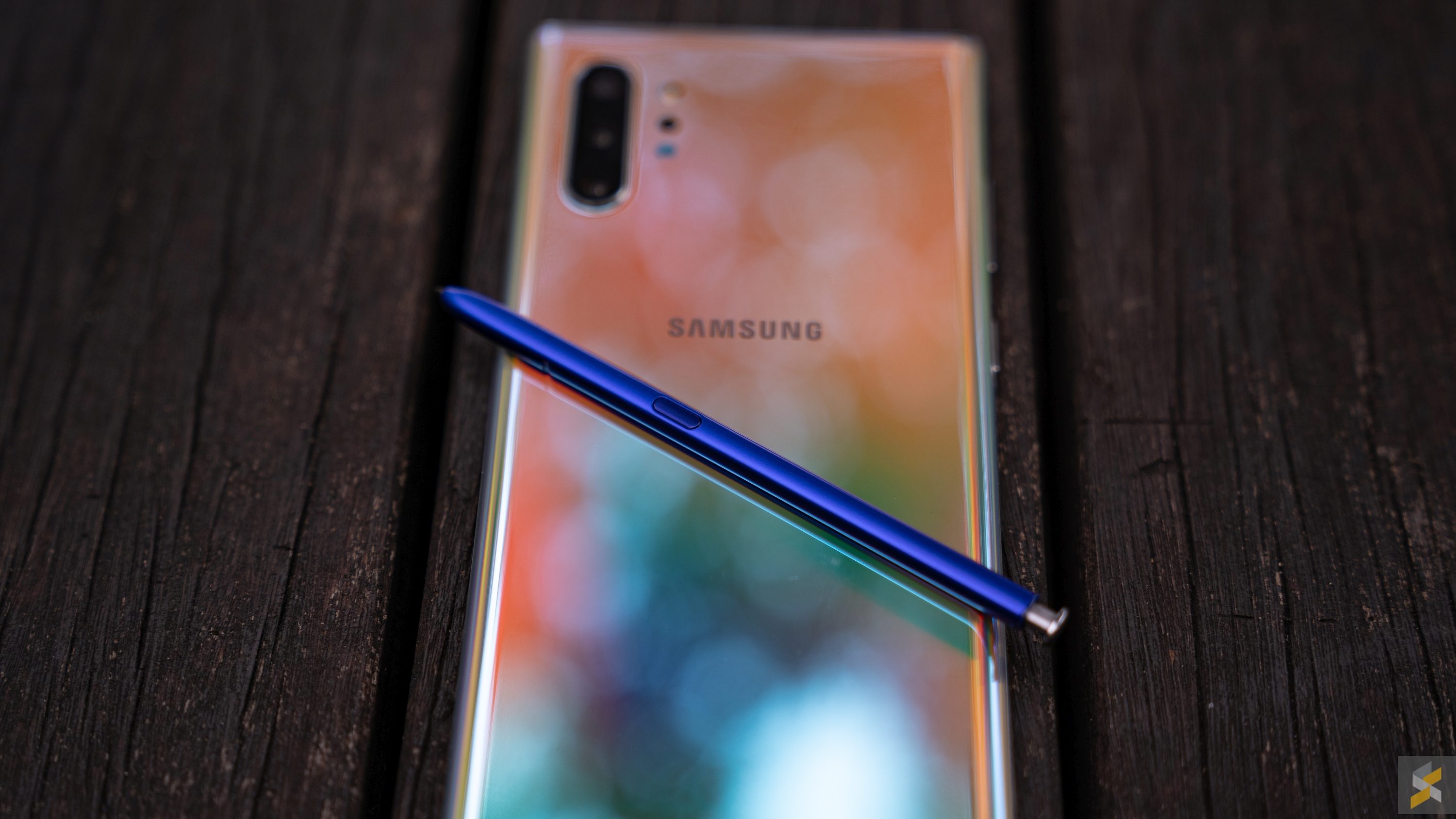
Let me just start by saying that I’m not much of an S Pen user, so I really didn’t use the stylus much during my review period. It was very useful when it came to taking notes, and I love the optical character recognition (OCR) feature that lets the Note 10+ “read” your handwriting because it makes organising notes so much easier. But, beyond that, the other writing and drawing features felt a little too gimmicky to me.
I’d be surprised if people used AR Doodle beyond the first couple of times that they mess around with it, and I’d be equally surprised if they used any of the current Air Commands past the first few twirls either.
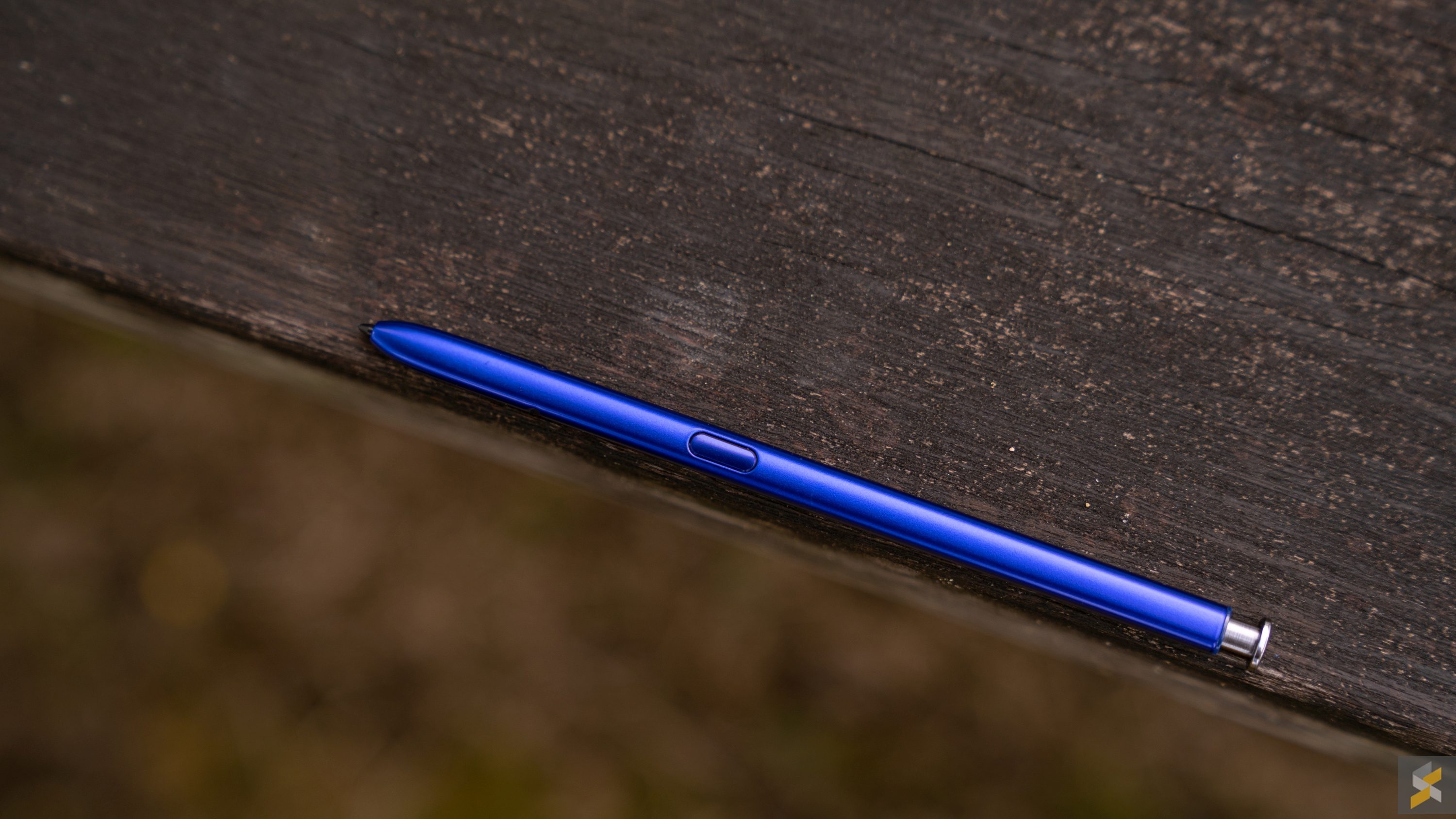
I think that as a whole, the S Pen is still every bit as good as it was on the Note 9, with great texture and feel when writing, second only to the Apple Pencil, outside of any purpose-built styluses. I really like that it’s still Bluetooth-enabled so you can use it as a remote for your camera, but beyond that, the other features feel pretty gimmicky. Safe to say that if you liked the Note 9’s S Pen, you’ll like this one too.
So far, I have to say that the Galaxy Note 10+ is putting on a show. It’s doing really well not just as an Android flagship smartphone, but also as a Galaxy Note. But now, we’ve come to that point in the review where I have to tell you about some of the things I didn’t like about this handset. And we’ll start with a minor but surprisingly inconvenient omission: the 3.5mm headphone jack.
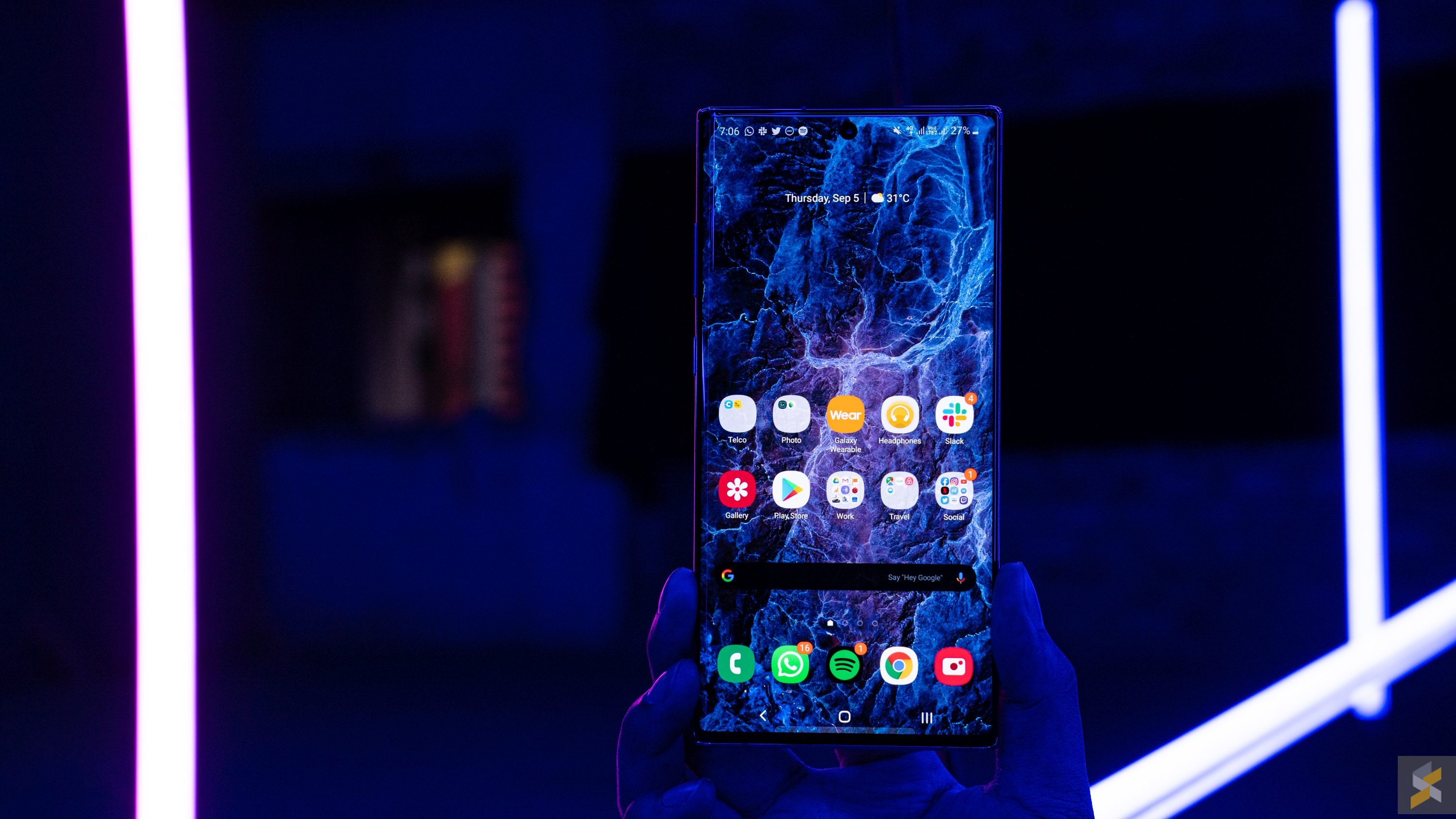
Its Achilles heel
Yes, the Galaxy Note 10+ is the first Galaxy Note flagship smartphone to axe this longstanding port. And yes, it’s just as inconvenient as you think it is. But for me, I think the most upsetting thing is that if Samsung’s willing to axe it from their “everything” phone, it’s highly unlikely that we’ll ever see it return on another Samsung flagship.
I’ve personally made the switch to Bluetooth headphones recently, but that was purely out of coincidence. And I know that not many of you have that luxury to do so, or would even want to compromise your listening experience with a switch to wireless. Because of that, I would have loved to see Samsung include a 3.5mm adapter in the box…but they don’t. So you have to buy one, even though you’ve already paid nearly RM4,000 for a smartphone.
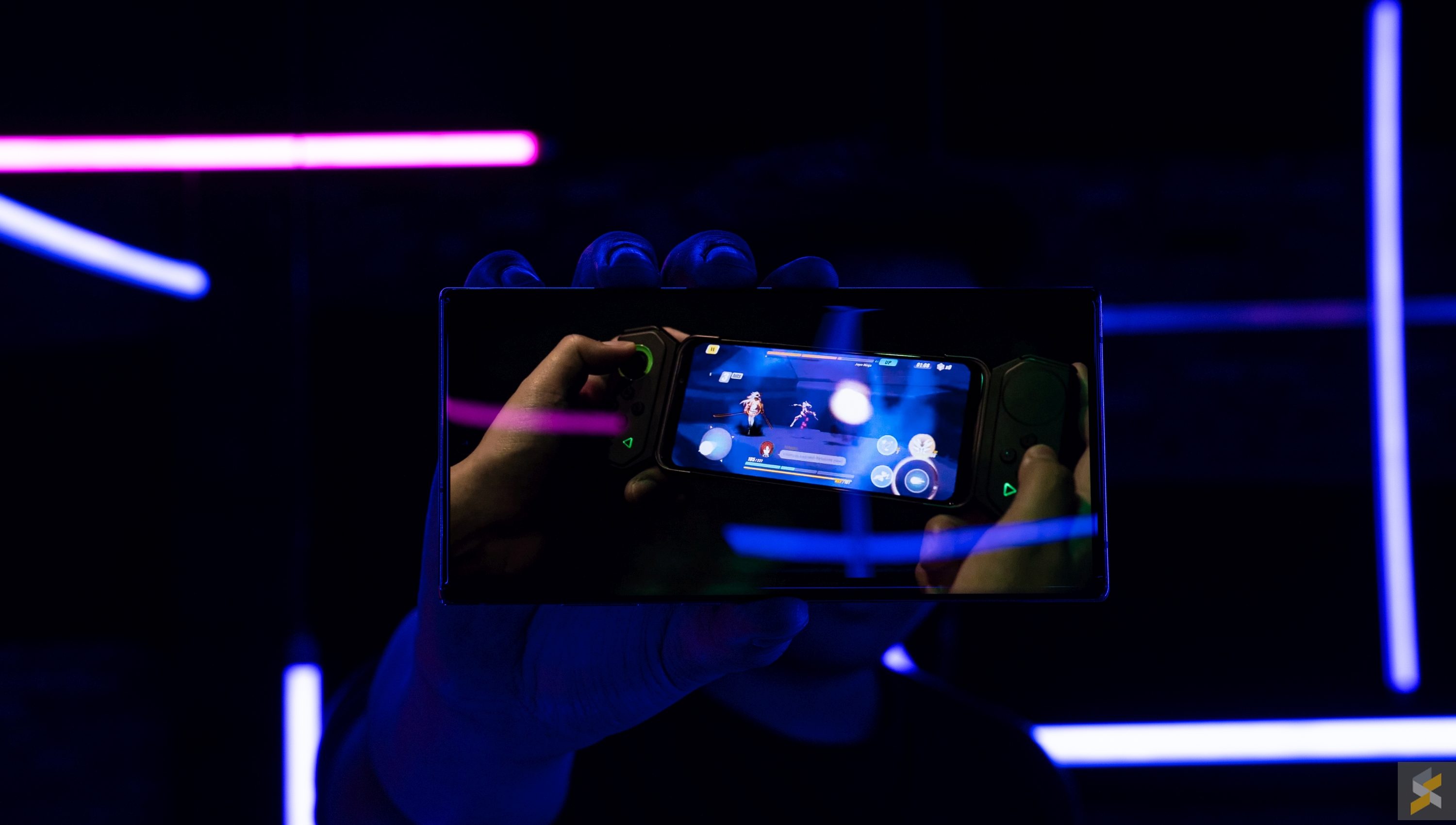
Oh, I should probably mention that Samsung has also upgraded the Galaxy Note 10+’s stereo speakers. There’s like an extra orifice at the top and everything, and it sounds pretty solid. But, I was honestly expecting a little more because at this point I still think that the iPhone XS has a better set of stereo speakers, so don’t even think it’ll be able to compete with a proper pair of front-facing stereo speakers.
At this point, I think the cons are still relatively minor–issues that I’d be more than willing to overlook in the grand scheme of things. The issue that I find much harder to overlook, however, is the handset’s Achilles heel that I alluded to earlier. And that, if you’ve been keeping track, is the smartphone’s battery.
I know right?! With a massive 4,300 mAh battery, I never thought this would have been an issue. I was fully ready to praise it and say that it would be perfect for the kind of power users Samsung built this phone for. But it’s not, and that really broke my heart.
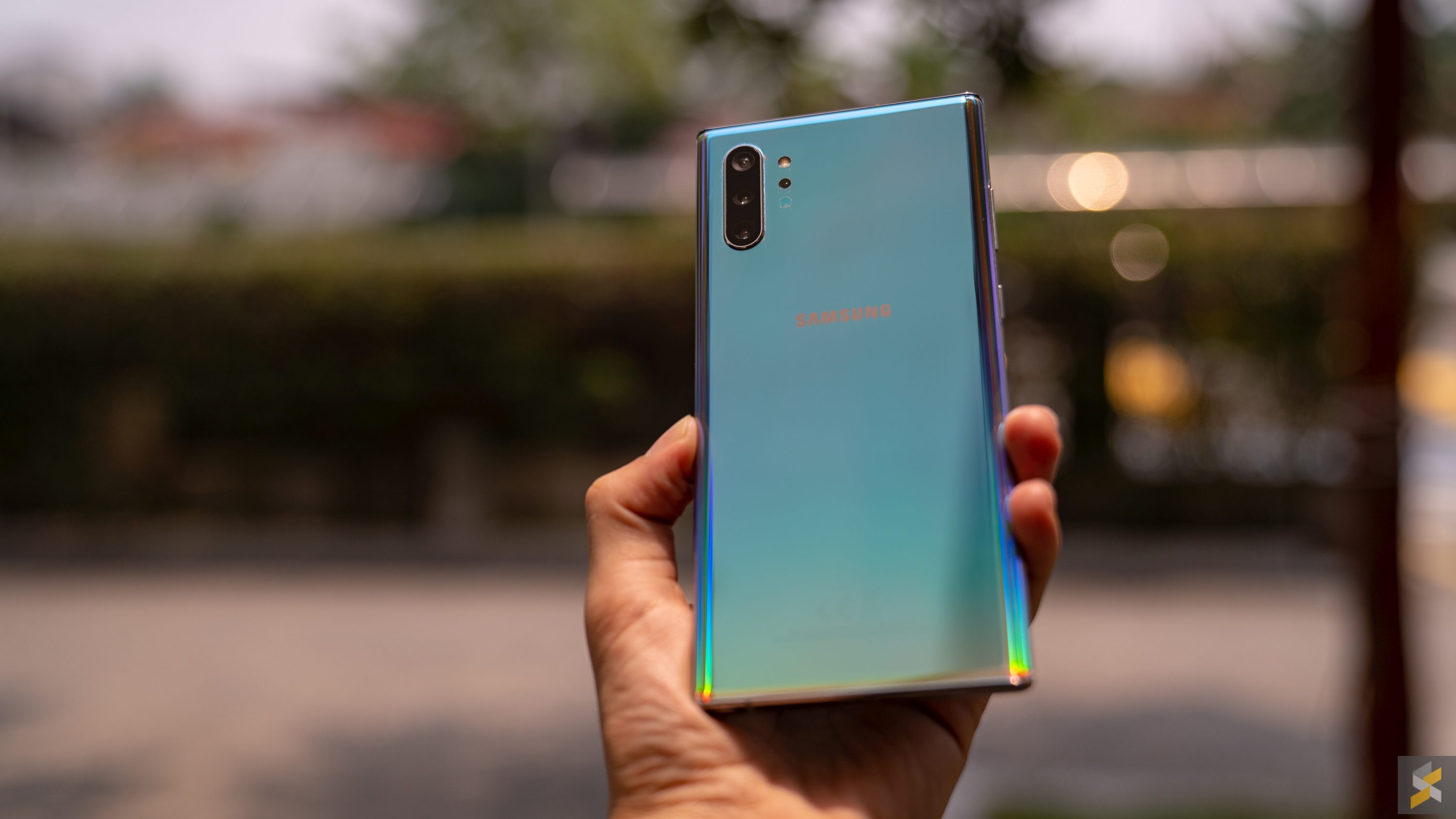
With the Note 10+ on all its default power optimisations–including keeping the screen at its FHD+ resolution–the most I was able to eke out of this phone, with moderate usage, was between 4.5 to 5 hours of screen-on time (SOT) with between 16-17 hours of time on battery. If I had an event, or it was on one of my heavier days, the phone would be dead before my day ended.
If you’re a power user, you’ll know that these are not good numbers. These are barely above average for a phone in 2019, what more a phone that’s designed for power users. I was expecting at least 6 hours (on par with what I got from the Galaxy S10+) or more with such a huge battery, but I ended up sorely disappointed.
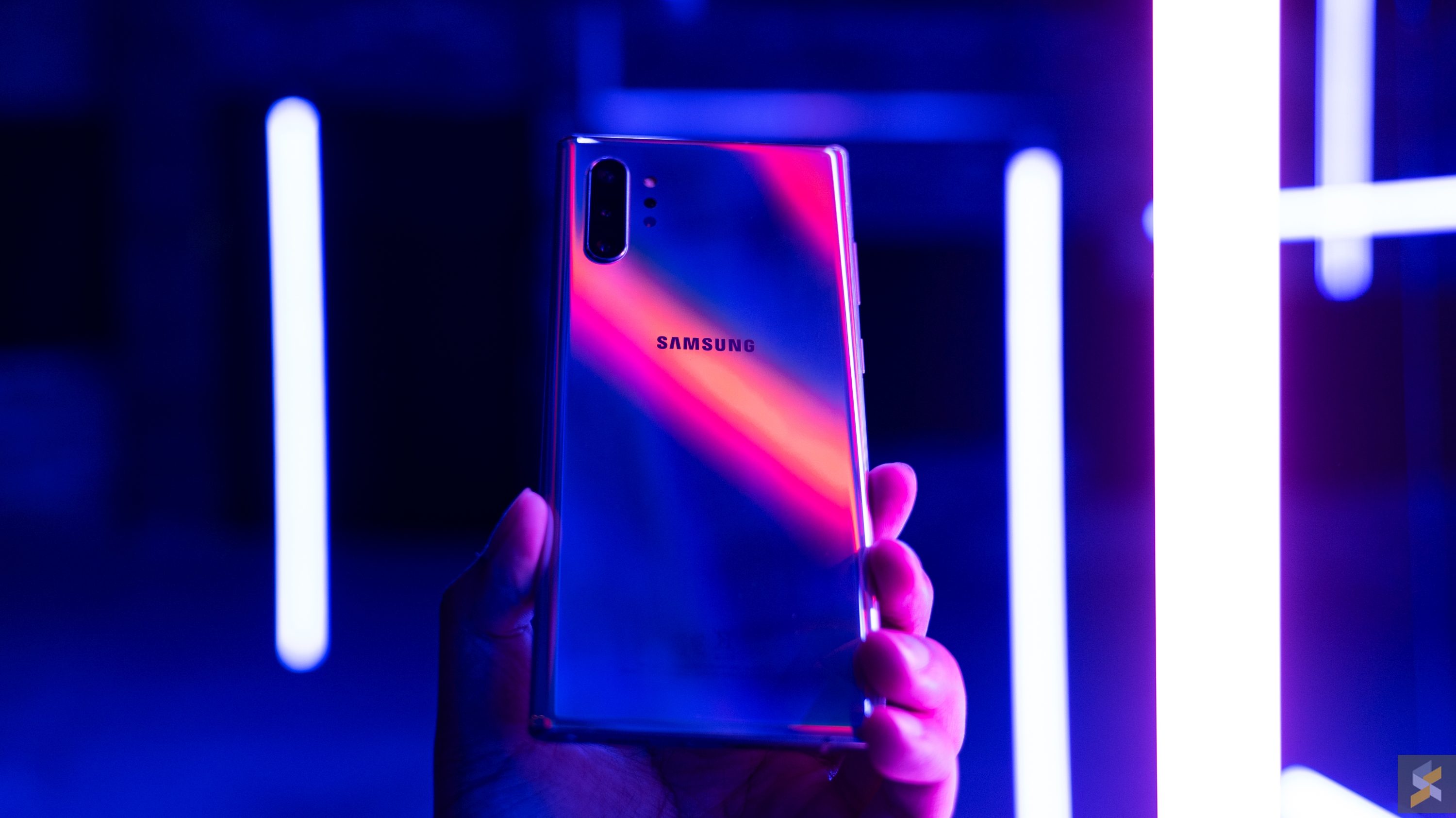
Sure, I appreciate that Samsung’s included a new 25W USB-C fast-charger in the box (Note 10+ supports 45W fast-charging, but the brick is sold separately), that can fully top up the phone in just over an hour (30mins gives you about 70%), but to me, fast-charging doesn’t make up for battery life. Neither does fast wireless charging.
I want to say that the underwhelming battery life is because Samsung’s battery optimisations aren’t quite as aggressive as some of their Chinese competitors at Huawei and Xiaomi. But that doesn’t explain how I get better battery performance out of a 6-month-old Galaxy S10+.
Don’t get me wrong, however. I’m not saying that the Galaxy Note 10+ has bad battery life, because 5 hours SOT is what I’d classify as average (maybe a little above average). So, most light users should be able to get a full day out of it. But, the thing is, the Galaxy Note 10+ is supposed to be a phone for power users. A phone for people who need zero compromises when it comes to their phone. And when you’re catering to that market, I don’t think these battery life numbers will cut it.
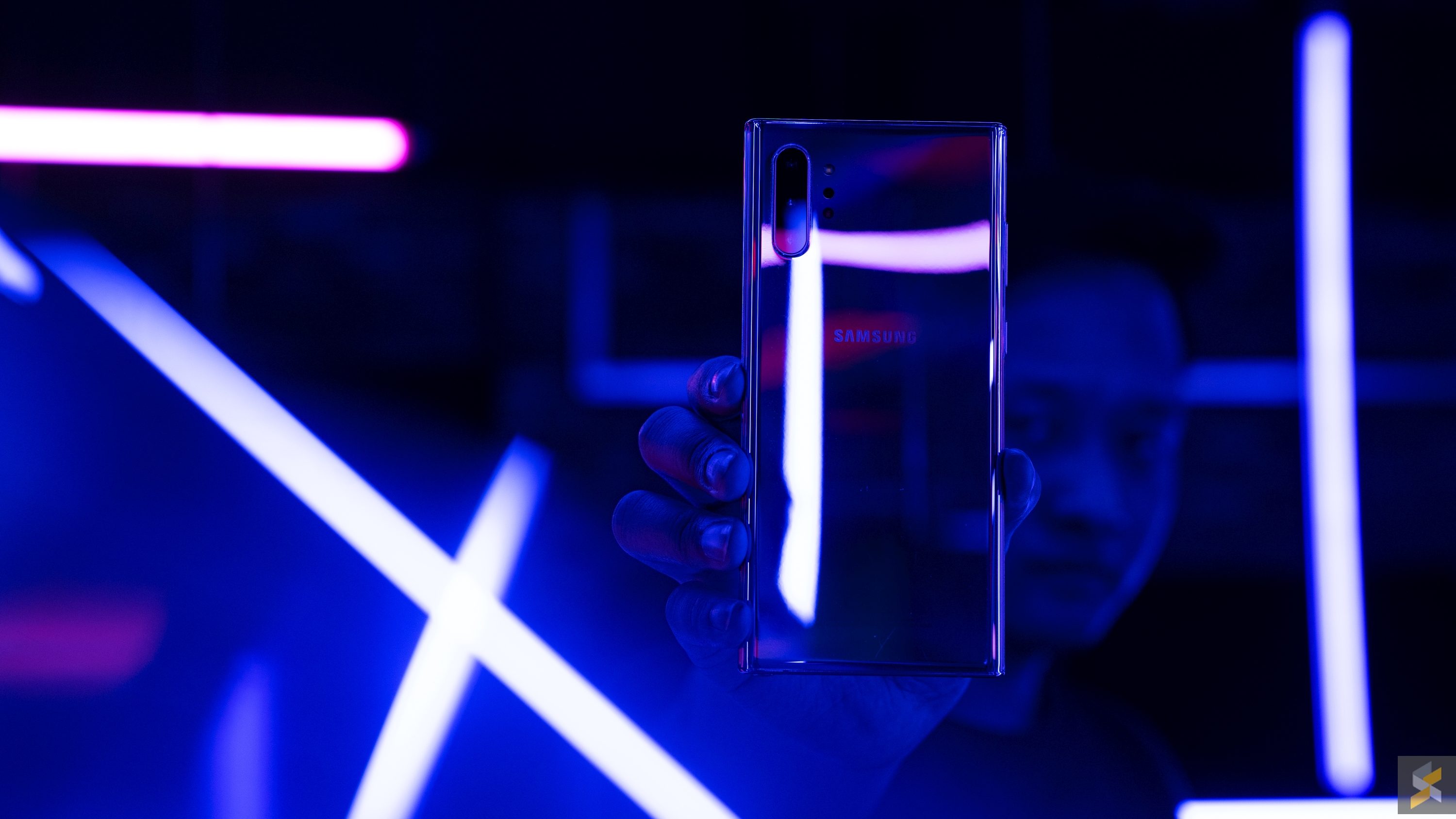
The bottom line
This, then, makes my job a little harder than it really should have been. After the announcement, and all the first impressions, I was under the impression that the Galaxy Note 10+ would be the easy default when it comes to Android phones. Like, the kind of phone that you could recommend to anyone and guarantee them a great experience.
But now, it’s not that easy to recommend to power users. And that’s a shame, because I think the Galaxy Note 10+ is still the best Android phone money can buy right now–even with its underwhelming battery performance. It’s got amazing scores in practically every other aspect of the smartphone.
Plus, it has the benefit of Samsung’s ecosystem with features like Samsung Pay, as well as better integration with the other smart products in Samsung’s ecosystem. Then, you’ve also got the new Samsung Dex which is more useful than it was in the past–but still more finicky than I’d like–and can come in handy when you’re in a pinch. These are features you won’t find on any other non-Samsung flagship, many of which are genuinely useful.
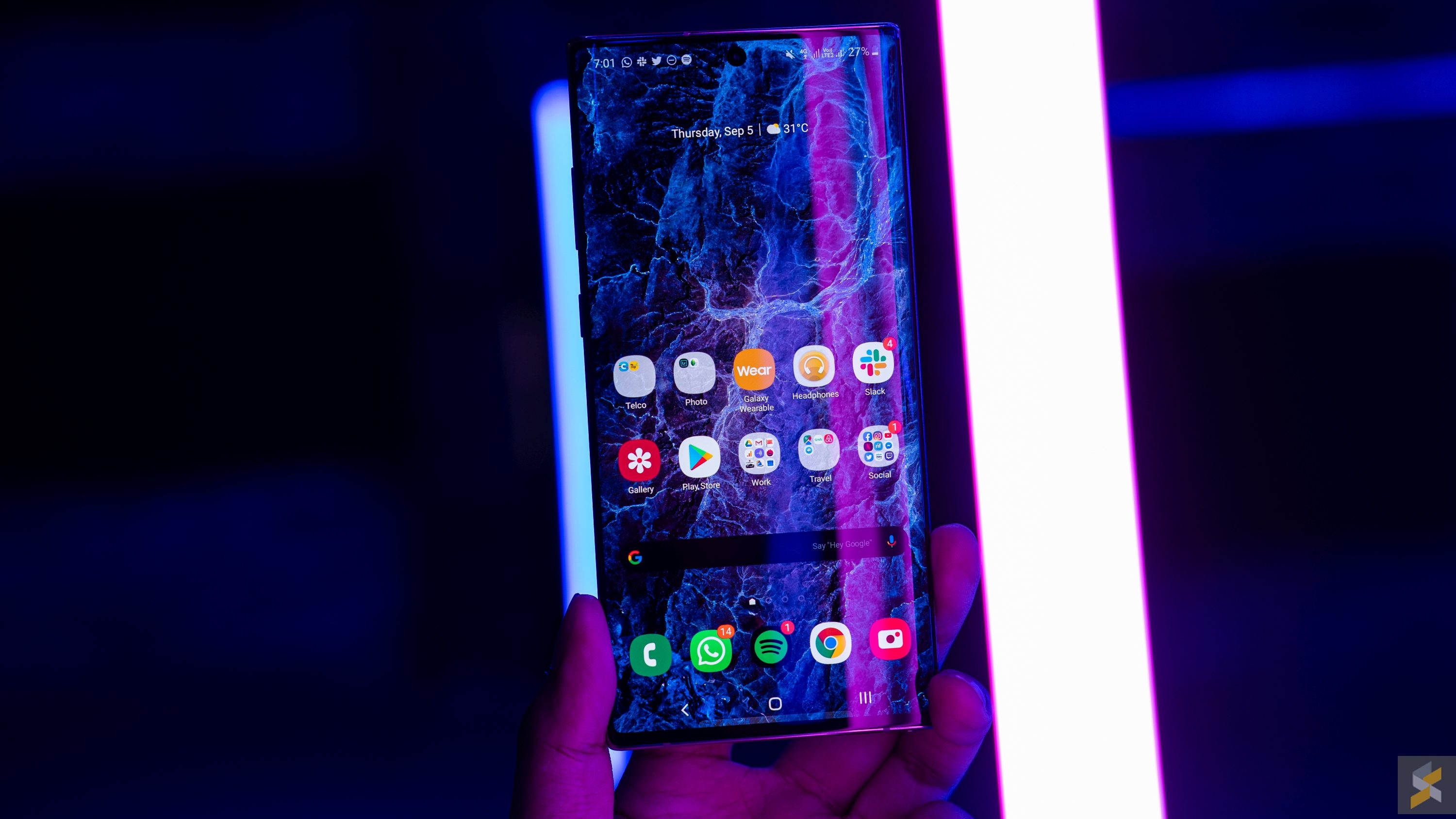
I really enjoyed my time with the Galaxy Note 10+ as a daily driver. In fact, I liked it so much that I almost wanted it to be perfect. But, as usual, nothing is ever what you want it to be.
So I guess the bottom line is this: despite the fact that the Galaxy Note 10+’s battery is not quite where I’d like, it’s still not what I would classify as dreadful. And, because everything else about the phone is really, really good, I would still say that this is the best Android phone you can pick up today–just keep a powerbank handy on those heavier days. However, if you think that 5 hours of screen-on time is enough for you, then the Note 10+ is unquestionably a class above the rest.
Photography by Zachary Yoong with the Sony A7 III.

